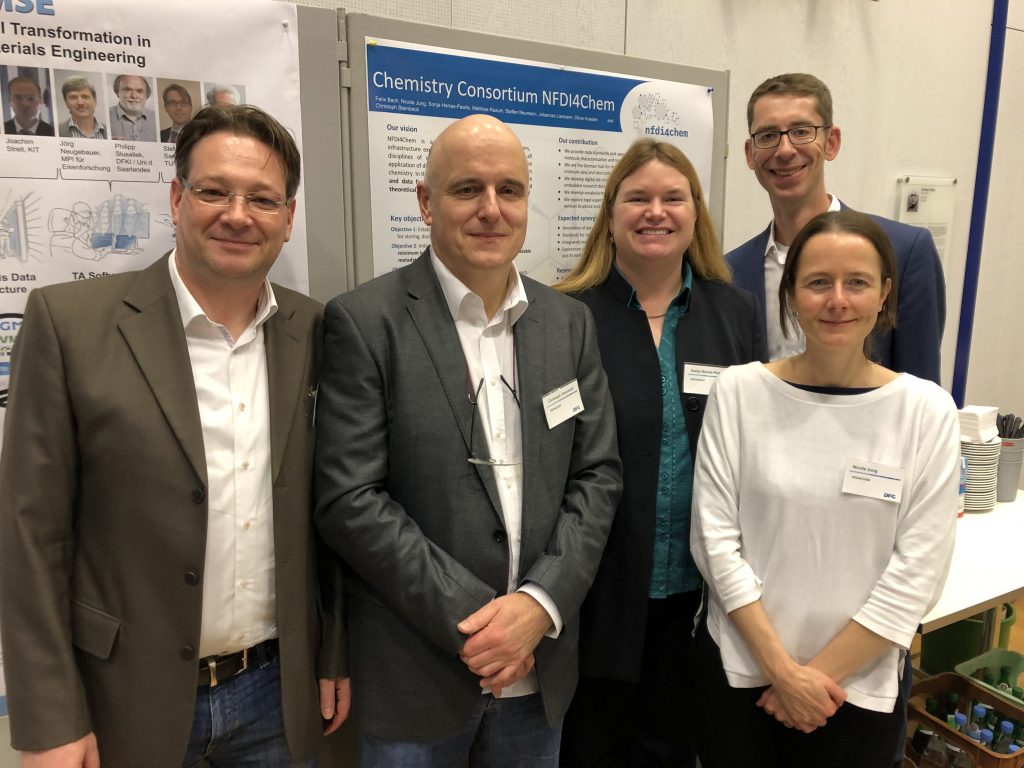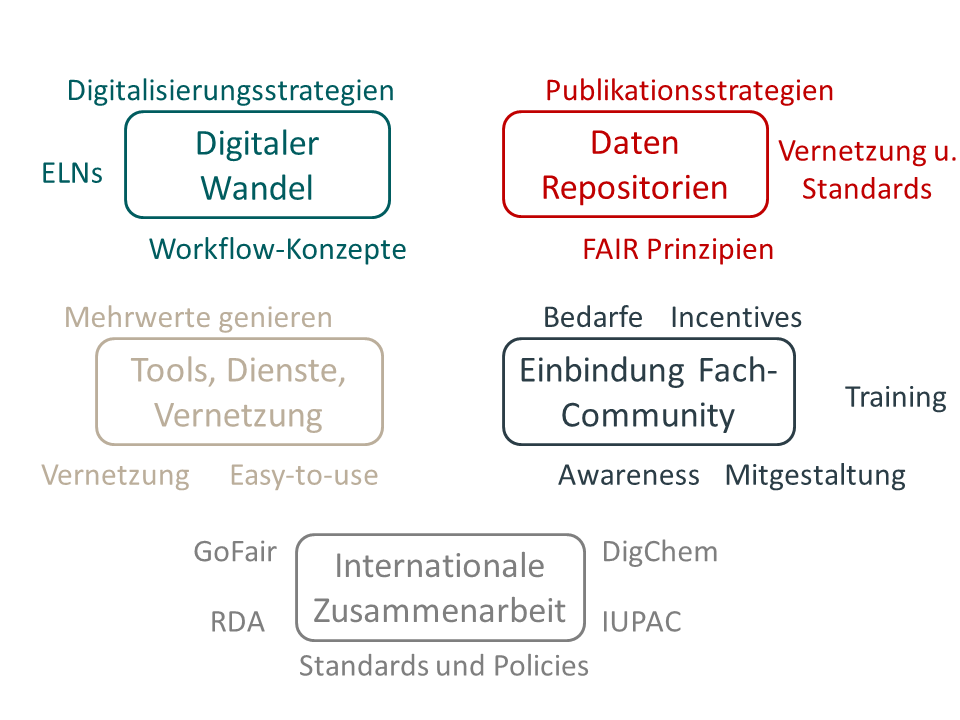The National Research Data Infrastructure (NFDI) is an outstanding infrastructure initiative for the science communities in Germany with the aim to harness the great potential of Research Data as a valuable resource for science and research. As of 1st October 2020, the first round of NFDI consortia receives funding for a period of five years, with the option of a five-year extension. TIB plays a key role in shaping the NFDI from the very beginning.
Within this network, the Technische Informationsbibliothek (TIB) – Leibniz Information Centre for Science and Technology – Program Area C, Research and Development, is looking to employ a
Software Developer / Semantic MediaWiki specialist (m/f/d)
to join the Lab Linked Scientific Knowledge at the earliest possible opportunity.
The position is initially limited to 3 years, but further employment is intended. The regular weekly working time is 39.8 hours (full-time). The position is only suitable for part-time work to a limited extend. The remuneration is based up to pay scale group 13 TV-L, depending on the applicant’s qualifications and depending on the assigned tasks and responsibilities.
Your tasks
Your tasks will be the co-design of knowledge management systems for information infrastructure projects of collaborative research centres and the development of tools for semantic data annotation and cross-domain mapping of ontologies as well as the provision of terminology services for NFDI4Chem, the chemistry consortium in the National Research Data Infrastructure. Your tasks will be embedded in an interdisciplinary team
Possible areas of work include, but are not limited to
- Implementation, development and maintenance of the software MediaWiki, Semantic MediaWiki and their extensions
- Development of SMW-based knowledge management systems in the context of information infrastructure projects of special research areas from engineering sciences
- Contributing to the development and curation of controlled vocabularies and ontologies for describing data for research data management (RDM) in chemistry
- Development of semantic tools for handling ontologies and semantification of data in chemistry
Your qualities
- Completed university degree (Bachelor’s or Master’s degree) in a relevant field of study such as computer science, engineering sciences, chemical informatics, bioinformatics, information sciences or comparable
- Experience with working in an agile software development environment, particularly with web-based applications
- Experience with WikiMedia software environments, especially Semantic MediaWiki
- Very good knowledge in one or more of the following programming languages: Python, JavaScript and PHP
- Experience with core semantic web technologies (OWL, RDF, SPARQL)
- Experience with version management systems based on Git
- High degree of self-organisation and ability to work independently
- Very good written and spoken English skills; proficiency in German is a plus
- Willingness to learn new technologies and languages
Desired additions to your profile
- Experience with Research Data Management in Engineering Sciences or Chemistry
- Interest in working in a research and library environment
- Willingness to be engaged with other scientific disciplines
- Experience with CI/CD workflows based on GitLab
- Experience in DevOps and/or system administration
What we offer
The Lab Linked Scientific Knowledge is part of the Data Science & Digital Libraries Research Group. TIB’s Research and Development Department offers a scientifically and intellectually inspiring environment with an entrepreneurial mindset, embedded in a leading technical university and one of the largest technical information centres being part of the Leibniz Association.
The research department at the TIB is relatively young and offers many opportunities. It is our vision to rethink the representation and provision of data and information and to organize them in an Open Research Knowledge Graph (ORKG) in the future. There is a close cooperation with the L3S Research Centre at Leibniz University Hannover, one of the world’s leading research institutes in the field of Web & Data Science, within the Leibniz Joint Lab Data Science & Open Knowledge.
Last but not least, we attach great importance to an open and creative working atmosphere in which it is fun to work.
Furthermore, we offer
- Funding for necessary equipment, conference and research visit travel
- Work in the context of a national research and innovation projects
- A portfolio of technology components to build on, including ORKG, OpenResearch.org, TIB AV-Portal, DBpedia.org and other
- A modern workplace in a central location of Hanover with a collegial, attractive and versatile working environment
- Flexible working hours (flexitime) as well as offers for reconciling work and family life such as mobile work and remote work options
- An employer with a wide range of internal and external further education and training measures, workplace health promotion and a supplementary pension scheme for the public sector (VBL)
- Discount for employees in the canteens of the Studentenwerk Hannover as well as the possibility to use the various offers of the University Sports Hannover
- A job in the public service with a salary up to pay scale group 13 TV-L according to the provisions of the collective agreement for the public service in Germany (TV-L), including a special annual payment and 30 days of vacation per year
If you are interested, questions regarding the position can be addressed to Dr. Oliver Koepler, head of the Lab Linked Scientific Knowledge, by e-mail at Oliver.Koeplertibeu.
How to apply
We look forward to receiving your application.
Paper applications are also possible on an equal basis. In this case, please send your complete application documents with the subject 12/2022 before March 24th 2022 addressed to
Technische Informationsbibliothek (TIB)
Personalservice
Herrn Daniel Eilers
Welfengarten 1 B
30167 Hannover
Germany
or alternatively as a single PDF document file to Bewerbung (at) tib.eu. For applications in digital from, please send a PDF file with a maximum size of 10 MB.
Who we are
TIB, being part of the Leibniz Research Association, is with around 550 employees one of the largest technical information centres in Germany, having three main functions:
- Acting in the capacity of the Leibniz Information Centre for Science and Technology, our forward-looking services secure the infrastructural requirements for providing researchers in science and industry with high-quality information and literature.
- Carrying out cutting edge research to further expand TIB’s role as a German information centre for the digitisation of science and technology
- Offer library services for the Leibniz University Hannover.
TIB is an equal opportunity employer, providing ideal working conditions, and continuously taking action to enable its employees to combine career interests with family life. It wants to promote equal career opportunities for women and men in particular and therefore urges qualified women to apply.
Severely disabled candidates with comparable qualifications will be given preferential treatment.
We welcome applications from all nationalities.
Please indicate in the subject of your application which job exchange brought our offer to your attention.
Please note that your application documents will not be returned, and application and travel costs cannot be reimbursed.
View this job advertisement as a PDF.
.


